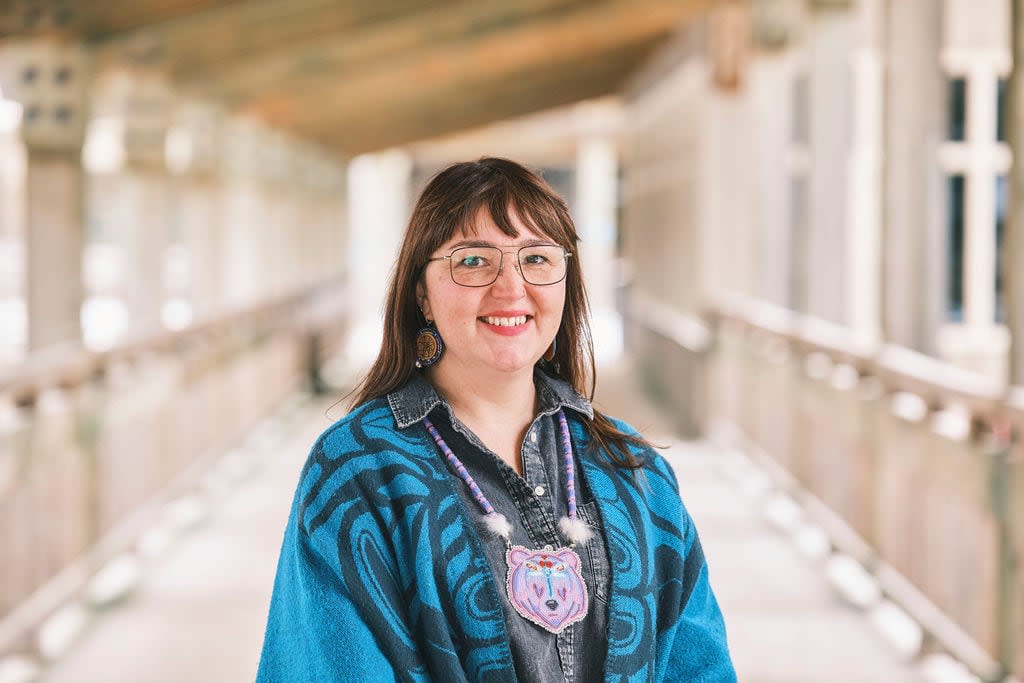Qalipu First Nation welcomes 1st female chief, as Jenny Brake takes role on acting basis

Qalipu First Nation has selected western vice-chief Jenny Brake to take over the top job on an acting basis after the resignation of longtime chief Brendan Mitchell.
Brake takes over the job with less than a year until the next election, when the membership will vote on a full-time chief.
She's the first woman to hold the position of chief for Qalipu First Nation. Brake, a welder by trade, said she was a "unicorn" on the job site throughout her 20s.
"I've had a lot of thoughts about that because a lot of the roles I've taken on in my life have been kind of breaking a glass ceiling around gender diversity and making spaces for women and for Indigenous folks," she told CBC News. "There's a lot of women that have come before me in leadership roles in our Indigenous community, and I honour their efforts."
The band's bylaws state either the western or central vice-chief will take over the top job in the event of a chief's resignation. That bylaw came into effect after Mitchell stepped down to take on a role with the Assembly of First Nations as regional chief for Newfoundland.
Continuing work on membership issues
Brake said she's looking forward to continuing work on critical issues like the Qalipu's membership enrolment.
The enrolment was marred with controversy after some families were simultaneously accepted and rejected — in some cases taking one sibling while rejecting another.
Work on these issues will take time, said Brake, and it's important people not turn against each other in the process.
"The issue is not something that's going to go away overnight. It may not even go away in this generation, unfortunately," she said.
"I think that what we have to keep in mind is that this is not a battle of Qalipu First Nation versus outstanding members. This is a battle of [our] community with Canada, unfortunately. I hate to say that, but we are struggling with reasoning with the folks in Canada to allow us to bring our family members back in. And that includes my own family members."
While those issues remain unresolved, Brake said she wants to help foster connections with Qalipu First Nation for those who remain outside of the official membership.
"I absolutely want to ensure that all the families that are involved in our enrolment, whether they have a status card or not, feel they are part of the Qalipu family. A status card gives you certain entitlements that the Indian Act provides, but culture is for everyone."
Download our free CBC News app to sign up for push alerts for CBC Newfoundland and Labrador. Click here to visit our landing page.


